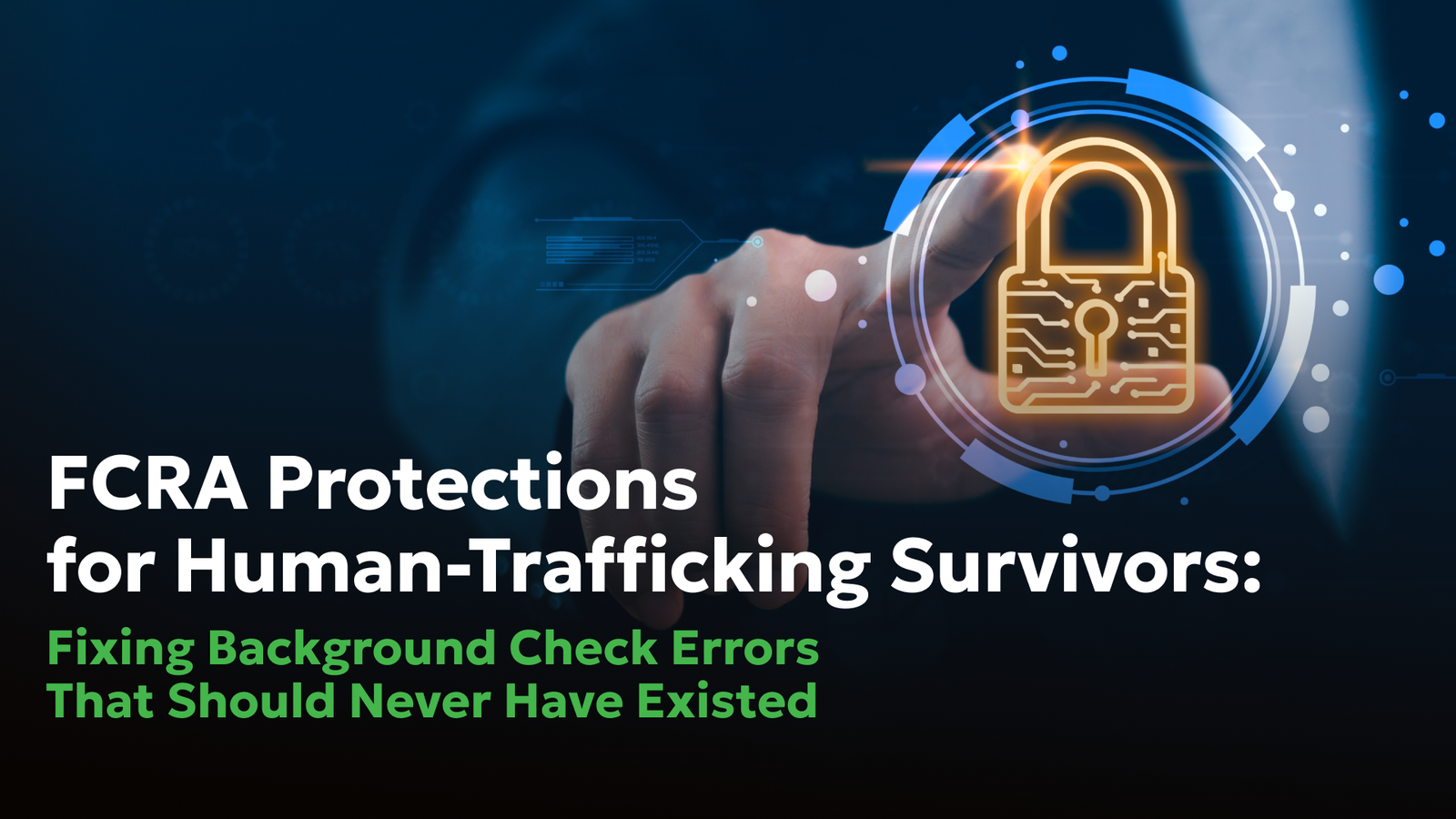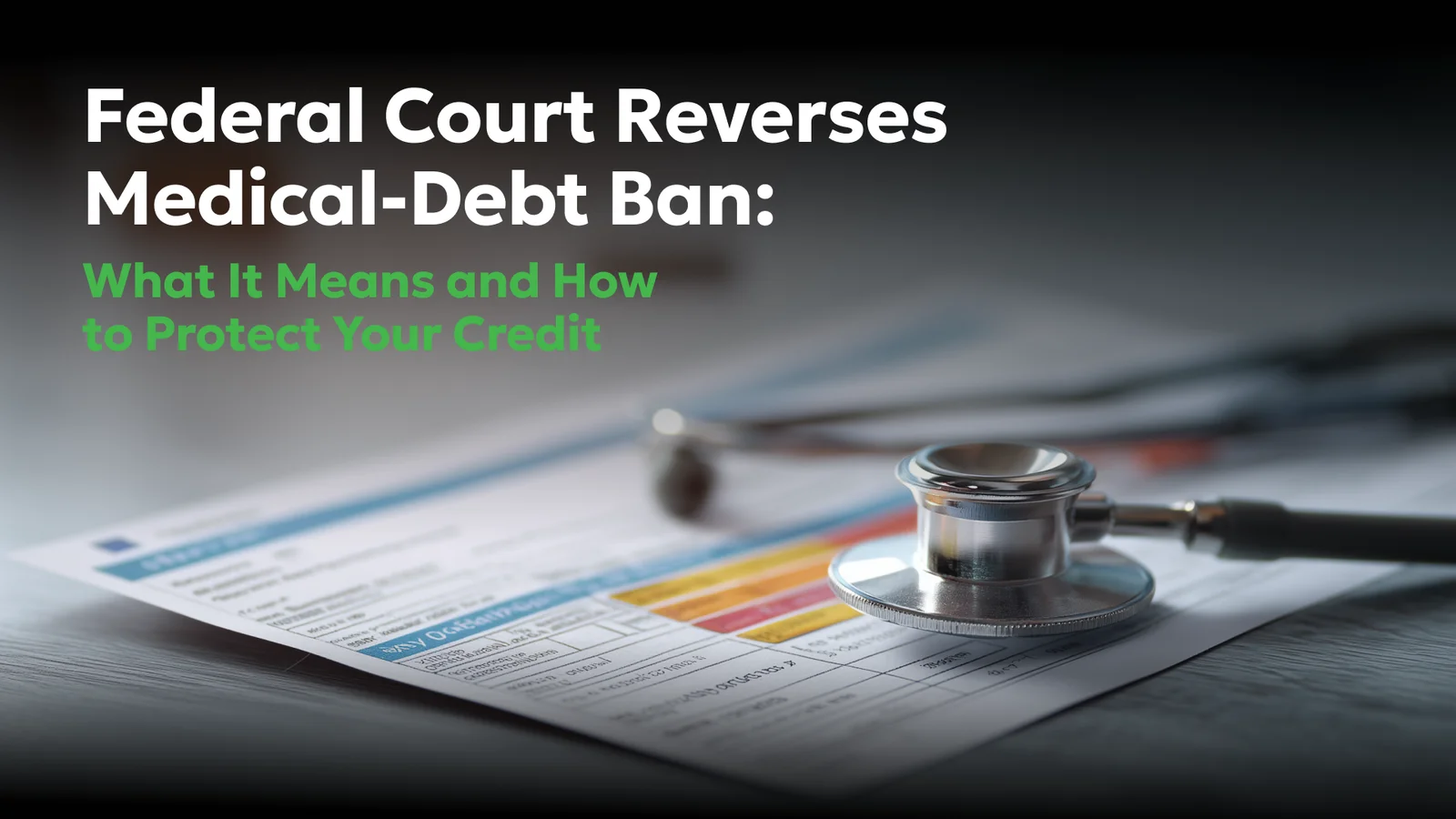How to Dispute TransUnion Credit Report Errors
- Blog
- Credit Reporting Inaccuracies
How to Dispute TransUnion Credit Report Errors

A Step-by-Step Breakdown of How to File, Support, and Escalate a Credit Report Dispute with TransUnion
A credit report is not just a collection of numbers - it is a reflection of your financial health and your overall financial journey. At its core, the purpose of a credit report is to give financial decision-makers a portrait of your debt-to-asset ratio (how much you owe compared to what you own) and your overall engagement with credit as a consumer. It shapes how lenders evaluate your ability to borrow, how landlords assess your reliability as a tenant, and in some cases, how employers measure your stability and trustworthiness.
This concept is called your creditworthiness. A credit score is essentially a snapshot of that creditworthiness, placing you somewhere on the spectrum from “very bad” to “excellent.” In other words, your TransUnion credit report carries weight far beyond the pages of a financial statement; it can open doors to opportunity or close them without notice.
So, it’s obvious that when it comes to your credit report, precision is non-negotiable. There is no room for errors - accuracy is critical. Even the most minor flaw, a late payment that never happened, an account that doesn’t belong to you, or an outdated personal detail, can distort the picture, lower your credit score, and unfairly damage your financial stability. Correcting those mistakes is essential if you want your report to represent your true financial standing.
While it is possible to start a TransUnion credit report dispute directly with the bureau, the process often proves to be more complex than it initially appears. For many consumers, it feels less like a straightforward correction and more like a brainteaser, full of delays, vague responses, and unexpected denials. The rules are there, but the path forward is not always obvious.
This is where experience matters. Consumer Attorneys PLLC stands ready to protect your rights and fight for accurate reporting. Our commitment: your story heard, your credit file accurate, your rights respected.
If you have ever wondered how to dispute TransUnion credit report errors effectively, the following guide offers a practical roadmap and highlights how the right assistance can make all the difference.
Ways to File a Dispute with TransUnion
You can dispute errors with TransUnion in three main ways: online, by mail, or by phone.
- Online disputes are the most common and fastest. You log in to TransUnion’s portal, review your report, flag inaccurate entries, upload supporting documents (ID, billing statements, police reports, etc.), and submit your claim. By law, TransUnion has 30 days to investigate, correct, and respond, though many consumers find disputes often come back “verified as accurate” even with strong evidence. Our attorneys know how to prepare strong dispute packages that TransUnion cannot easily ignore.
- Disputes by mail create a physical record, which can be critical if your case escalates. For many consumers, mailing a written dispute remains one of the most effective approaches. In a letter, you should include identifying details (name, birthdate, Social Security number, address), a clear description of what you’re disputing, and copies (never originals) of supporting documents (statements, IDs, or court records). Importantly, don’t sign waivers limiting your right to sue, even if a lawsuit feels unnecessary at this stage. Preserving this right is critical, because often it takes legal action to get errors corrected and lives back on track. To protect yourself, keep copies of all correspondence, mail receipts, and documents you send.
- Phone disputes are available as well at 800-916-8800. Phone disputes may be quick, but without a clear paper trail, they’re harder to enforce. For that reason, most experts recommend online or mail disputes whenever possible. If you have phone conversations with anyone at TransUnion, keep detailed notes on the date, time, subject of the call, and the name of the representative you spoke with.
If you’re not sure how to frame your letter or what supporting evidence will carry the most weight, Consumer Attorneys specializes in drafting persuasive dispute letters that combine clarity with legal authority and are difficult to dismiss.
Step-by-Step Guide to Disputing Your TransUnion Credit Report
Follow these steps to start a TransUnion credit report dispute:
You’re entitled to one free credit report each year through AnnualCreditReport.com. Review it carefully for mistakes or suspicious entries. If you already have an account with TransUnion, you can also access your report directly through their portal at no cost.
Struggling to find the right documents? Consumer Attorneys PLLC can obtain and analyze your report for you.
Look for inaccurate accounts, incorrect late payments, or wrong personal details. Keep detailed notes about why each entry is inaccurate.
Not sure what qualifies as an error? Our attorneys can review your report and confirm what should be challenged.
Collect evidence such as bank statements, utility bills, government-issued IDs, or fraud reports. Strong documentation strengthens your case.
Preparing the right paperwork can be tricky; our team ensures your dispute package is complete and compelling.
File your dispute with TransUnion online, by mail, or by phone, and always keep copies of your submissions.
Not confident in your filing? Our dedicated team can handle the process from start to finish.
You've filed a dispute with TransUnion. Now what?
Once you’ve filed your dispute, it’s important to track its progress:
- Online: Log in to the TransUnion portal to check real-time updates.
- By Mail: Expect written results within 30 days.
- Timeline: You may ask, “How long does a TransUnion dispute take?” By law, TransUnion generally has 30 days to investigate, although in practice, delays happen.
Important follow-ups to watch for:
TransUnion may send letters stating they were unable to identify you or that the dispute appeared to come from a third party, in which case no action was taken. If that happens, resend the dispute promptly and include copies of your ID, Social Security card, supporting documents, and a copy of the letter you received.
If you receive a dispute response but it’s unclear, look for whether the item was marked “updated,” “removed,” or “verified.” If the language is confusing, you can pull an updated copy of your credit report immediately, even before the 30-day period ends, to confirm what actually changed.
If no response arrives at all, wait the full 30 days. At the end of that period, pull a fresh report. If nothing changes, having proof that your dispute was delivered (such as certified mail records) becomes critical, as it may show that TransUnion failed to properly investigate.
If your dispute status with TransUnion hasn’t changed or is marked as “completed” without corrections, our attorneys can escalate the matter and push for results. At that stage, filing a lawsuit for credit report errors is often the next step to compel a proper investigation and seek damages for the harm caused to your credit.
Common Issues People Dispute with TransUnion
Many consumers face serious errors on their TransUnion reports that can affect financial stability, career opportunities, and even personal reputation. Some of the most common issues include:
Some of the most common issues include identity theft with fraudulent accounts or charges that appear on the report; incorrect background checks that may affect job opportunities; deceased reporting where a consumer is mistakenly listed as deceased; and personal information errors such as wrong addresses, names, or employment details.
These mistakes are more than just inconveniences; they can have lasting consequences. Consumer Attorneys PLLC is experienced in addressing these disputes and helping clients resolve them quickly and effectively.
Why Work with Consumer Attorneys PLLC
Trying to fix a TransUnion dispute on your own can be stressful, time-consuming, and frustrating. Disputes often require persistence, careful documentation, and a clear understanding of the Fair Credit Reporting Act (FCRA). Without that foundation, it’s easy to give up in despair when updates are delayed or when no corrections are made.
That’s where Consumer Attorneys PLLC comes in. We don’t just submit forms; we work to ensure your rights are fully protected and your case is presented as strongly as possible. Here’s what you can expect when working with us:
- Proven experience handling disputes across all major bureaus, including TransUnion, Equifax, and Experian, giving us insight into how each bureau operates and what strategies are most effective.
- Free case assessment. No out-of-pocket fees - We review your situation to see if it qualifies under our practice area. You never pay upfront or during the process - fees are recovered from the defendant when applicable.
- FCRA-based protection - If your rights under the Fair Credit Reporting Act have been violated, you may be entitled not only to corrections but also to compensation. Our attorneys can determine whether your case qualifies.
Take the Next Step
If you’ve found errors on your TransUnion credit report and feel unsure how to proceed, Consumer Attorneys PLLC can help assess the situation and explain whether we’re able to assist.
As a nationwide practice with many years of experience, we understand the frustration of dealing with credit reporting errors. Our role is simple: to stand by your side, protect your rights, and guide you toward a fair resolution. We’ve seen every type of error and every kind of pushback, and we know how to make sure TransUnion does what the law requires.
We know the Fair Credit Reporting Act (FCRA), we know the credit reporting system inside and out, and we know how to secure the corrections and, when appropriate, the compensation you are entitled to.
- Call us today at (866) 720-5962 for a free case review
- Fill out our Contact Us form or start a live chat
- Email us anytime at info@consumerattorneys.com
Let’s talk - and take the first step toward fixing your credit report and restoring your peace of mind.
Frequently Asked Questions
Start through the official TransUnion online dispute portal.You can file online, by mail, or by phone. Written methods (online or mail) provide the strongest evidence.
Mail letters to: P.O. Box 2000, Chester, PA 19016.
Request your report, identify errors, gather supporting documents, and submit your dispute. For best results, work with Consumer Attorneys PLLC - legal professionals who know how to navigate the process and make sure your rights are fully protected.


Daniel Cohen is the Founder of Consumer Attorneys. Daniel manages the firm’s branding, marketing, client intake and business development efforts. Since 2017, he is a member of the National Association of Consumer Advocates and the National Consumer Law Center. Mr. Cohen is a nationally-recognized practitioner of consumer protection law. He has a we... Read more
Related Articles




R
ONGS™You pay nothing. The law makes them pay.







